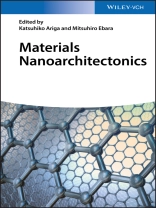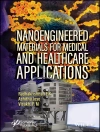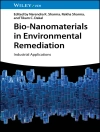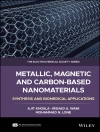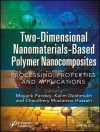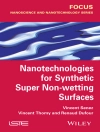A unique overview of the manufacture of and applications for materials nanoarchitectonics, placing otherwise hard-to-find information in context.
Edited by highly respected researchers from the most renowned materials science institute in Japan, the first part of this volume focuses on the fabrication and characterization of zero to three-dimensional nanomaterials, while the second part presents already existing as well as emerging applications in physics, chemistry, biology, and biomedicine.
Table of Content
HISTORY AND CHANGE THINKING
Rooms at Bottom: Micro-World and Nano-World
Success Story of Nanotechnology
Nanoarchitectonics: from Tool to Architecture
Way of Nanoarchitectonics
Materials Nanoarchitectonics
ZERO- AND ONE-DIMENSIONAL NANOARCHITECTONICS
Architectonics in Nanoparticle
Nanoparticle Organization
Nanowire, Nanofiber, Nanorod, Nanowire, and Nanotube
Clay Nanotubes
TWO-DIMENSIONAL NANOARCHITECTONICS
Graphene Technology
Nanosheet
Organic Ultrathin Film
Layered Nanoarchitectonics
Emerging 2D Materials
THREE-DIMENSIONAL AND HIERARCHIC NANOARCHITECTONCS
Self-Assembly and Directed-Assembly
Conversion of Organization to Material
Hierarchic Organization
Functional Porous Materials
Integrated Composites and Hybrids
Shape-memory Materials
MATERIALS NANOARCHITECTONICS FOR APPLICATION 1: PHYSICAL & CHEMICAL
Electronics Materials
Energy & Environment
Sensing
Self-healing
MATERIALS NANOARCHITECTONICS FOR APPLICATION 2: BIOLOGICAL & BIOMEDICAL
DDS
Mechanobiology
Diagnostics
Immunoengineering
LOOKING BACK PAST AND DREAMING FUTURE
Total Views across Dimensionality
Dreaming Future with Nanoarchitectonics
About the author
Dr. Katsuhiko Ariga is the Director of Supermolecules Unit and Principal Investigator of World Premier International (WPI) Research Center for Materials Nanoarchitectonics (MANA), the National Institute for Materials Science (NIMS), Japan. He received his B.Eng., M.Eng., and Ph.D. degrees from the Tokyo Institute of Technology (TIT). He was Assistant Professor at TIT, worked as a postdoctoral fellow at the University of Texas at Austin, USA, and then served as a group leader in the Supermolecules Project at Japan Science and Technology Agency (JST). Thereafter, Dr. Ariga worked as Associate Professor at the Nara Institute of Science and Technology, and then became involved with the ERATO Nanospace.
Dr. Mitsuhiro Ebara is Principal Investigator in the Mechanobiology Group at the National Institute for Materials Science (NIMS), Japan
